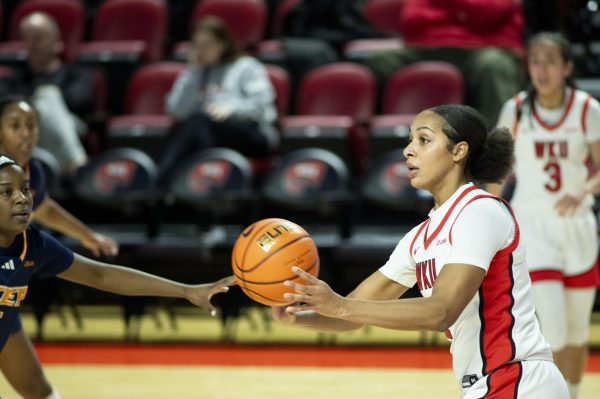A guide to better sleep: how to avoid college exhaustion
September 13, 2017
Let’s face it: with the pressure of academics, extracurricular activities and social events, getting the recommended eight hours of sleep seems impossible.
According to the University Health Center at the University of Georgia, most college students only get between six and seven hours of sleep every night. Lack of sleep can lead to a weakened immune system, poor academic performance, depression, anxiety, weight gain and more.
Although we can’t always get the perfect amount of sleep every night, with some information on sleep influences and a few tips to avoid restlessness, the exhaustion of college can be prevented.
Caffeine
Whether it’s a cup of coffee, tea or a an energy drink, caffeine has become a necessity for several college students. In fact, the National Sleep Foundation reported that caffeine is the most popular drug in the world. Caffeine works by blocking sleep-inducing chemicals and increasing adrenaline levels. While caffeine is great to use as an energy boost in the morning, it cannot replace sleep.
Unhealthy caffeine consumption can also detrimentally impact sleeping habits. According to the Sleep Health Foundation, caffeine can make it more difficult to fall asleep, cause lighter sleep and force one to wake up multiple times throughout the night. To prevent these consequences, keep the following tips in mind:
· Don’t consume caffeine within four hours before sleeping, and avoid caffeine in the late afternoon and evening.
· Keep caffeine consumption below four cups a day.
· Avoid using caffeine powder as an energy boost.
Naps
While a structured sleeping schedule is ideal, naps are the next best thing when it comes to feeling well-rested. Napping can increase alertness, improve performance and provide relaxation, according to the National Sleep Foundation. However, naps can also ruin sleeping schedules and cause sleep inertia, a groggy effect that leaves you feeling more restless than before. In order to receive only the benefits of napping, follow these guidelines:
· Avoid naps that are 30-60 minutes long. Naps of this length can cause you to wake up in the middle of a deeper sleep stage.
·A 10 to 20 minute nap is ideal because you only enter the light sleep stages. If you have the time, a 90-minute nap allows you to complete an entire sleep cycle and can boost memory and creativity.
· Don’t nap too early or too late in the day. For the former, your body isn’t ready for more sleep, and the latter can hurt nighttime sleep.
Sleep Medication
In theory, sleeping pills appear to be a perfect solution to slight sleeping problems. However, they can be very dangerous as well. According to Everyday Health, relying on sleeping medication can lead to tolerance, causing individuals to take more medication to have an effect. To avoid the dangers of sleep medication, use the following tips:
· Sleeping pills work best for short-term sleeping disorders, like jet lag. For chronic insomnia, consult a doctor rather than using over-the-counter medication.
· Only take sleeping pills for approximately a week or two – any longer could lead to a dependancy.
· Gradually decrease your dosage of sleeping pills to avoid withdrawal.
Exercise
Exercise is important for our health in several aspects, including sleep. Exercise increases alertness, energy and metabolism during the day and can lead to a good night’s rest, according to the National Sleep Foundation. To properly utilize the benefits of exercise for sleep, remember these guidelines:
· Exercise at least three hours before bedtime to prevent restlessness.
· Exercising during the late afternoon is ideal. While exercising, body temperature increases and takes up to six hours to cool down. Cooler body temperature helps you sleep, while a high body temperature hinders it.
· Don’t get discouraged if there aren’t immediate effects. It can take weeks or even months for regular exercise to improve sleeping patterns.
With these four factors in mind, exhaustion in college can be kept to a minimum. While the coveted eight hours a sleep every night can’t be achieved by all, everyone can improve their sleeping patterns with just a few lifestyle adjustments.
Reporter Adrianna Waters can be reached at 270-745-6011 and [email protected].






















